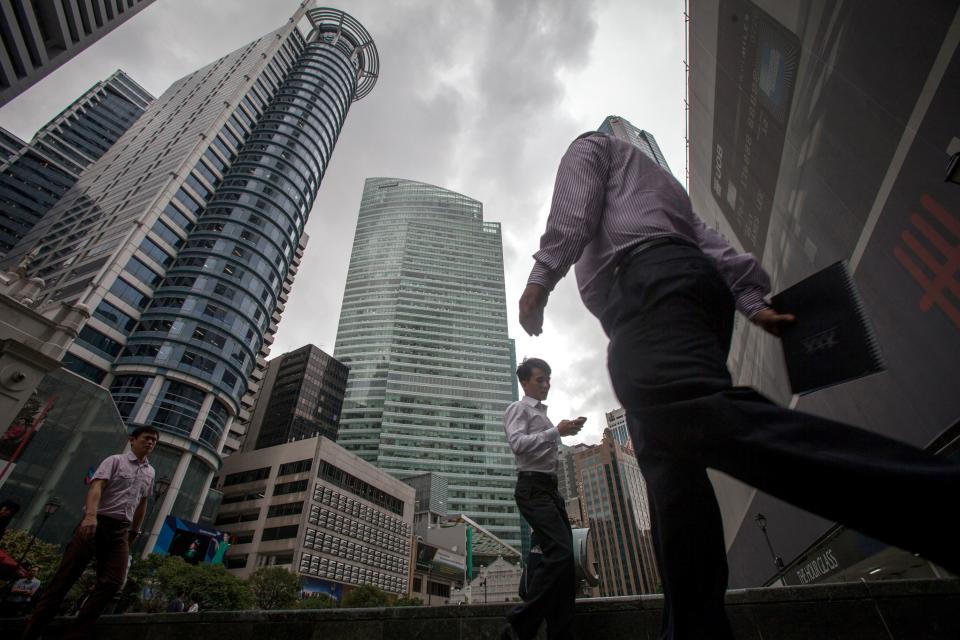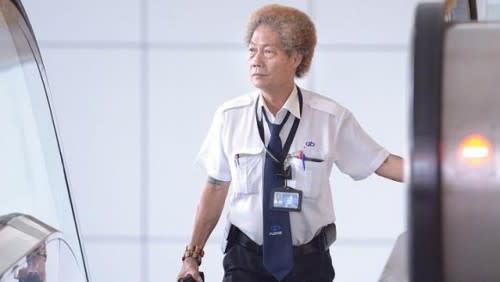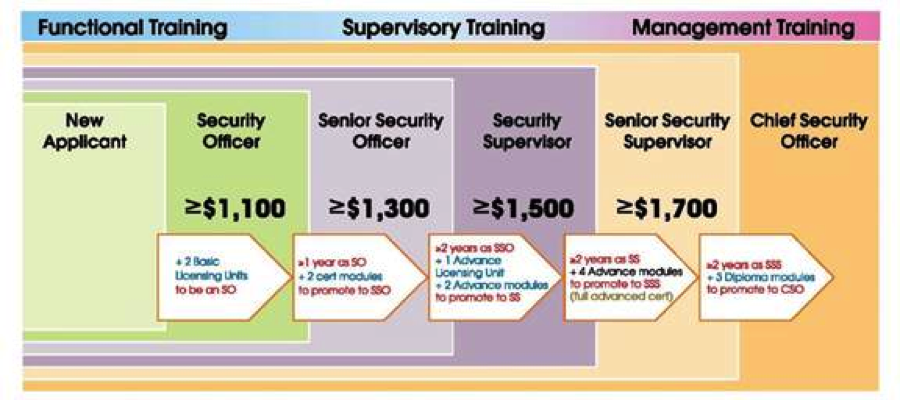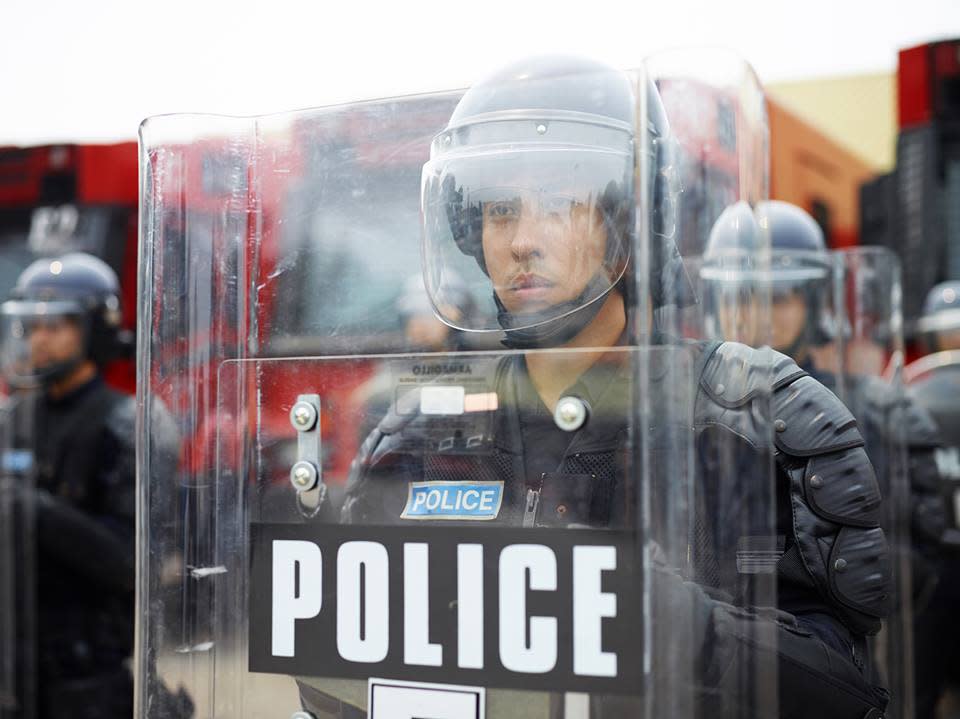The Vulnerability In Singapore’s Safety That We Cannot Ignore

This article originally appeared on Vulcan Post.
Since Exercise Heartbeat, my friends and I have often launched into conversation about what would happen in Singapore during an emergency. We’d often use imaginary scenarios of a man stepping out onto the streets with a gun, or with a bomb strapped to his chest. With high-rise buildings all around, what would the first move be? Would people run screaming, some hiding in corners as they call the police? Would anyone step up to save the injured, or try to subdue the armed man?
It was then that I raised the question: “What would the security guards do?” Silence responded.
The role of a security officer in Singapore is a debatable one. We see them often, and yet we hardly notice them. Heck, we probably never feared them or saw them as a symbol of authority. At age 17 I was coaxed into entering a private condominium, heavily guarded with security officers, to visit its roof thirty storeys high. As a bunch of rebellious teenagers, we strolled into the building like we owned the place, took the lift with its residents up to the top floor, and climbed over barricades to its roof.
We did it often. We never got caught.
In this day and age, the fact that we could do what we did scares me, because what could be easily done by a stupid 17-year-old can surely be replicated by someone with ill-intent.
In other countries, the situation may have been different. According to a website of security resources for security-related personnel, a security officer’s job is to prevent and deter crime, and are often trained to perform tasks like making citizen arrests, restraining mavericks, operating emergency equipment, and even performing first aid and CPR.
Security companies like G4S, the largest provider of security officers in the world, even recognise well-performing and brave security officers. In July of this year, two officers were given awards for bravery and professionalism — one for detaining a man who fired a flare gun in a Honolulu Hotel, another for saving a woman from a burning car. In Singapore, security officers making headlines are often shrouded in scandal for bribes or indecent behavior.
The Problem With Singapore’s Security Industry
Image Credit: Straits Times
To understand why security officers are perceived the way they are, you must first understand the business behind security officers.
To become a security officer, you will need one thing — an ID card. This ID can be obtained by passing two WSQ modules, mandated by the Police Licensing and Regulatory Department. Makes sense, since security officers are part of homeland defense. These WSQ modules are useful, but their effects can be easily negated by a complacent attitude in the workplace and confusing management styles of clients. As revealed by a rookie security guard in a Straits Times expose, the attitude towards regular book-keeping can often be overridden by management or a “this isn’t my problem” attitude. A security guard AMA (ask me anything) in a Singapore subreddit thread shared, “Depending on condo managers, enforcement against these could be super strict (to) “I dont (sic) really care”.”
The industry currently has approximately 75 thousand officers, of which about 43 thousand are full-time security officers. Of this number, a quarter are Malaysian, while the rest are either Singaporeans or Singapore PRs.
The security industry is plagued with low wages. For years, the basic monthly salary for security officers had been stagnant at about $700. Most would hit $1.1-1.3K with a mixture of 12-16 hour shifts and 6-day weeks. But the fact that security officers have to do excessive hours of work means that their energy, and therefore their quality of work, deteriorates. This situation has improved ever since the Progressive Wage Model (PWM) was launched last year.
In addition, the security workforce is aging, and will lose more than a third of their numbers in the next 10 years due to retirement. Without new blood, our current security force of 43K will soon drop to probably 20-25K in due course.
There are some agencies which are able to retain their officers through a combination of perks, training and career progression. However there are other agencies which struggle to meet client demands for cheapest bids, hence they find it difficult to raise wages.
The Shift In The System
The first step to solve the systemic problems is to improve wages, and start to “show people the money”.
It was previously announced that the tripartite partners of government, union and employer associations — which includes the Union of Security Executives (USE) — have launched the PWM, and licensing will go live in September 2016.
These guidelines will set the new basic monthly salary at $1.1K, and expand the previous three-tiered career path to five tiers, allowing for more incremental wage progression as well as more room for career mobility. The tripartite partners have also stated that they will next look at reducing OT hours from 2017 onwards.
The Future of Security
Along with these changes, we have a responsibility to rethink what security means. While several businesses and companies still adhere to the belief that more security officers means a safer environment, chances are the quality of these security officers aren’t justifying their numbers. Ten overworked security officers mean nothing if they are not equipped to deal with real life safety risks.
Image Credit: Singapore Police Force’s Facebook page
A popular form of security that works with a lesser number of security guards is the concept of “gated communities”, where residential areas make use of walls and fences along with other security measures like surveillance cameras, infrared sensors, motion detectors, and security officers, to segregate security measures. In Sweden, private security officers of gated communities work closely with police officers to do a full security planning of the area, coordinating to minimise and more effectively use the available manpower. This would make sense in Singapore, where the police force and the private security sector both face significant manpower challenges.
We also need to make greater use of technology. The headquarters of G4S, for example, has robotic security guards safeguarding its grounds that use cameras and scanners to map its environment as it patrols and determines if something is out of place. Another robot, called K5, patrols the Microsoft campus by making use of cameras, sensors, navigation equipment, and electric motors to detect strange activity.
“This takes away the monotonous and sometimes dangerous work, and leaves the strategic work to law enforcement or private security, depending on the application,” says Stacy Stephens, co-founder of the Knightscope, the company behind K5’s development.
Japanese firm Secom has also designed a prototype drone that can autonomously survey private grounds and is able to call the police and can be deployed to record intruders from a bird’s eye view when a customer’s alarm system goes off.
Singapore is moving towards being more open to the use of technology, but in comparison to our overseas counterparts, we fall behind in security measures.
No matter how many attempts at solving issues there are, nothing will change without first recognising that there is a problem. If we continue believing that Singapore is safe and impenetrable, we will become blind to its vulnerabilities. Perhaps it is time to return respect to the role of security officers, to regain that first line of defense, and be assured that we can rely on them not on being our cleaners, concierge services, or errand boys, but rather men and women who keep us safe in our homes and places of work.
The Government Has Spoken: GrabTaxi & Hailo Given Green Light To Run Taxi-Booking Apps
The post The Vulnerability In Singapore’s Safety That We Cannot Ignore appeared first on Vulcan Post.

 Yahoo Finance
Yahoo Finance 



